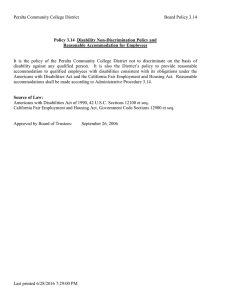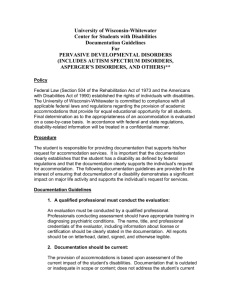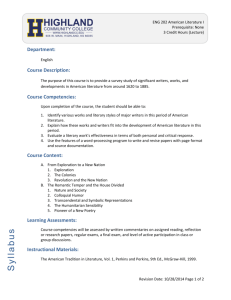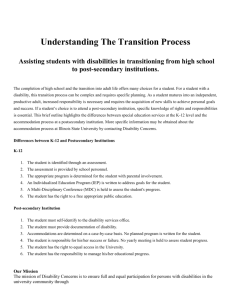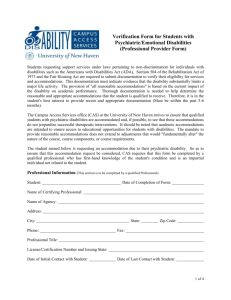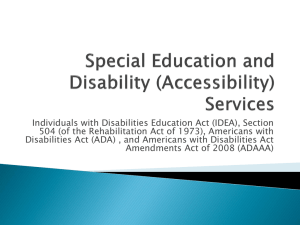University of Wisconsin – Whitewater
advertisement
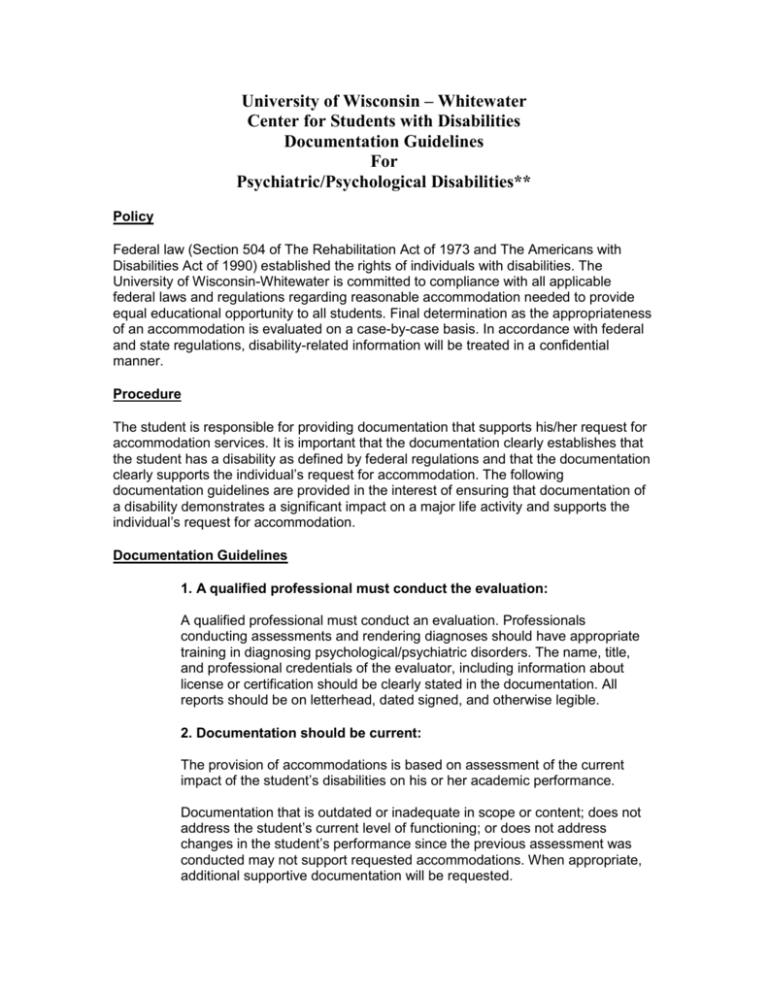
University of Wisconsin – Whitewater Center for Students with Disabilities Documentation Guidelines For Psychiatric/Psychological Disabilities** Policy Federal law (Section 504 of The Rehabilitation Act of 1973 and The Americans with Disabilities Act of 1990) established the rights of individuals with disabilities. The University of Wisconsin-Whitewater is committed to compliance with all applicable federal laws and regulations regarding reasonable accommodation needed to provide equal educational opportunity to all students. Final determination as the appropriateness of an accommodation is evaluated on a case-by-case basis. In accordance with federal and state regulations, disability-related information will be treated in a confidential manner. Procedure The student is responsible for providing documentation that supports his/her request for accommodation services. It is important that the documentation clearly establishes that the student has a disability as defined by federal regulations and that the documentation clearly supports the individual’s request for accommodation. The following documentation guidelines are provided in the interest of ensuring that documentation of a disability demonstrates a significant impact on a major life activity and supports the individual’s request for accommodation. Documentation Guidelines 1. A qualified professional must conduct the evaluation: A qualified professional must conduct an evaluation. Professionals conducting assessments and rendering diagnoses should have appropriate training in diagnosing psychological/psychiatric disorders. The name, title, and professional credentials of the evaluator, including information about license or certification should be clearly stated in the documentation. All reports should be on letterhead, dated signed, and otherwise legible. 2. Documentation should be current: The provision of accommodations is based on assessment of the current impact of the student’s disabilities on his or her academic performance. Documentation that is outdated or inadequate in scope or content; does not address the student’s current level of functioning; or does not address changes in the student’s performance since the previous assessment was conducted may not support requested accommodations. When appropriate, additional supportive documentation will be requested. 3. Documentation necessary to substantiate a disability should include: a. A statement, on letterhead, by a qualified health professional, such as a psychiatrist or clinical psychologist; b. A summary of assessment procedures, evaluation instruments used to make the diagnosis, and a summary of evaluation results; c. The statement should include a specific diagnosis, the nature of the disability, functional limitations, current status of the student, and any recommendations for support. These recommendations should be supported by the evaluation; d. When warranted, medical information relating to the student should also include the impact of medication on the student’s ability to meet the demands in the postsecondary environment. **These guidelines are not meant to be used exclusively or as a replacement for direct communication with the Center for Students with Disabilities. While submitted documentation meeting the above guidelines may be acceptable to the University of Wisconsin-Whitewater it is important to be mindful that they may/may not meet the documentation guidelines required in other academic or testing organizations.
